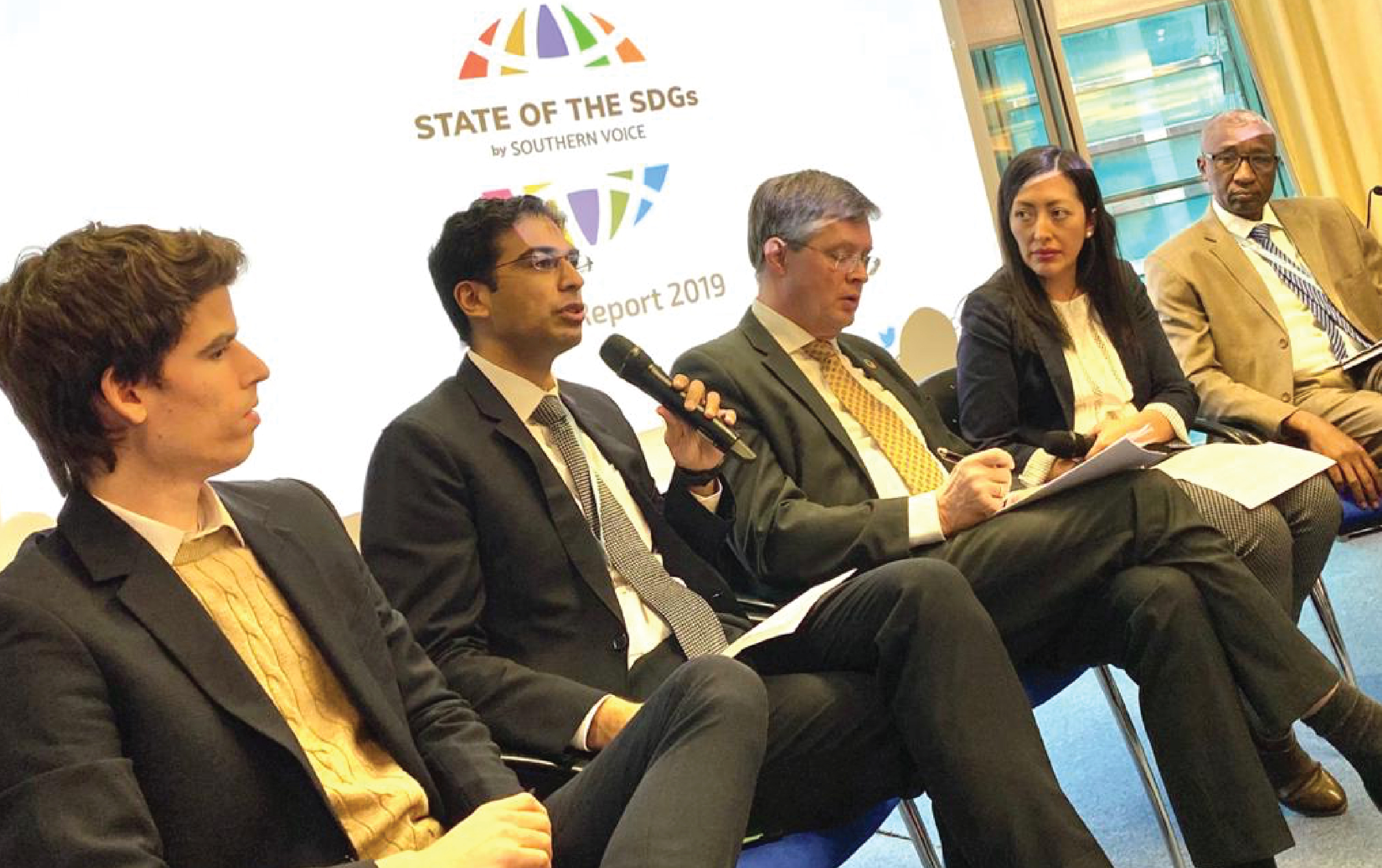The State of the SDGs report explores the barriers and solutions to the achievement of the 2030 Agenda.
Southern Voice launched its Global Report on the State of the Sustainable Development Goals (SDGs) 2019 in Geneva-Switzerland on 23 January 2020. The event took place at the Think Tank Hub with members of Geneva’s international development community. The event’s aim was to answer a critical question in these early days of a new implementation cycle: how do we accelerate progress towards the SDGs?
At the current pace, a large number of countries will most likely not be able to achieve the Sustainable Development Goals (SDGs) by 2030. Three Southern Voice researchers from three continents presented findings of their regional implementation surveys. These demonstrate that progress has been made towards achieving the Sustainable Development Goals, but the majority of the Goals might remain unfulfilled.
The first session was opened with a keynote by former Prime Minister of the Netherlands, Jan Peter Balkenende, representing the World Leadership Alliance – Club de Madrid. He kicked off the discussion by stressing the alignment of the Leave No One Behind principle to the Club De Madrid’s vision of a “shared society”. He urged the global community to collaborate, learn from one another, and be willing to embrace change. He introduced the three areas of critical action promoted by Southern Voice’s Global Report. These are:
- Understanding and addressing exclusion
- Maximising synergies and minimising trade-offs between SDGs
- Taking global systemic issues into account in the design of policies
The discussion highlighted the existence of gaps between multi-stakeholder partnerships which prevent Global Systemic Issues from being properly addressed. Panellists stressed the danger of underestimating the negative impact of SDGs interventions in the absence of a thorough “diagnosis” of the interlinkages between Goals. They also explored the need for a framework to come to a context-dependent understanding of exclusion.
Key recommendations included:
- further investment in the disaggregation of data (to better understand said patterns of exclusion);
- collaboration between actors and prioritization (of broad-impact goals for example) to maximise synergies and minimise trade-offs;
- mapping of global actors who should be taking the lead in understanding global systemic concerns;
The second session provided a platform for the discussion of regional implementation challenges. A few common obstacles emerged during the presentation of the findings, such as the mobilisation of resources, or the collection of data. So did particular ones, such as Latin America’s lack of policy sustainability beyond a government term, Sub-Saharan Africa’s struggles in aligning three development agendas, or Asia’s non-existent assessment of the interlinkages between goals.
“Latin America has been a middle-income region for years, stuck in the “middle-income trap”, explained Margarita Beneke de Sanfeliu (FUSADES, El Salvador). She commended the 2030 Agenda for pushing the continent to focus on synergies & trade-offs between Goals. According to her, it could provide an opportunity for the region to break free from its “development traps”.
Towfiq Khan (CPD, Bangladesh) said that Asia will likely not attain any of the SDGs by 2030. He urged the audience to focus on the pace of implementation and indicated that, provided sufficient funding, the progress made by 2030 could be significant.
Finally, Ibrahim Kasirye (EPRC, Uganda) stressed the importance for Sub-Saharan Africa to upgrade its statistical systems. Failing that, he concluded, “we might not actually be able to know whether we are making progress or not on a number of SDGs, especially the ones that were not in the Millennium Development Goals.”
We invite you to read the individual regional reports on Africa, Asia and Latin America.
The next discussion of these findings is scheduled for early March in New York. We are looking forward to engaging more members of the global development community. Our report highlights the importance of centring the aforementioned three layers of critical action in forthcoming discussions about SDG implementation.


